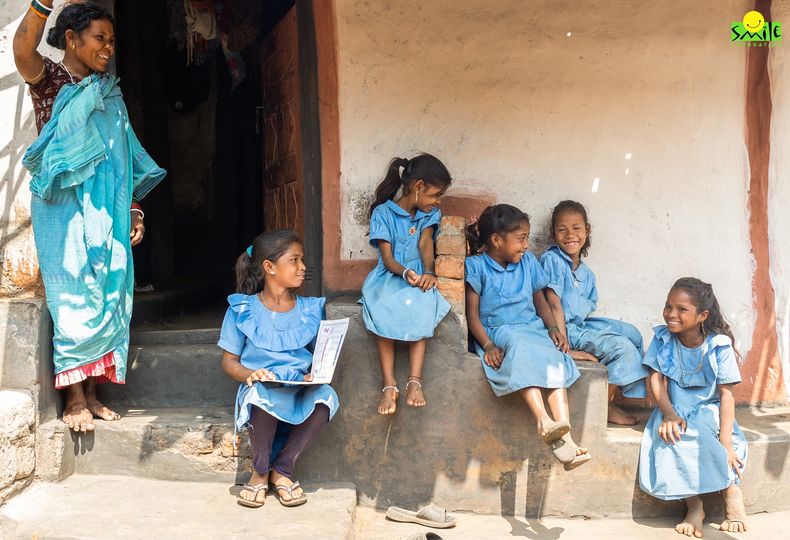“Books are our best friends”, this age-old saying has been true since time immemorial, and who in the world does not want best friends? This National Reading Day, we must try our very best to inculcate the habit of reading books in our children so that they too understand the beauty a book brings to one’s life.
Encouraging children to read books is more than just getting them to flip through pages – it is about a lifelong love for reading that makes vivid their imagination, vocabulary and sense of empathy. Distractions abound in today’s digital age, nurturing reading habits requires creativity and dedication from parents.
So how to develop reading habits in kids, especially in contemporary times where everything seems more convenient and attractive when it is digitalised?
Develop Reading Habits- A Guide
- Lead by Example
Children often emulate their parents’ behaviours and interests. If they see you engrossed in a book, they are more likely to perceive reading as a desirable activity. Make reading a visible part of your daily routine. Set aside dedicated time for family reading sessions where everyone reads their book silently or takes turns reading aloud. This not only cultivates a reading habit but also strengthens family bonds through shared literary experiences.
- Create a Reading-Friendly Environment
Designate a cosy reading nook in your home – a corner with comfortable seating, good lighting and a small bookshelf stocked with age-appropriate books. Make sure the area is free from distractions like screens and noisy appliances.
For example, you can make a small tent with cushions, blankets, or decorations, where you and your child can escape into the world of books; you can recite stories with actions. By being inside the tent or an enclosed cosy space, your child’s attention would be on the stories of the books, intriguing them to read the book even if you are not around.
- Let them choose their read
We have often heard that “do not judge a book by its cover”, and when you are an adult this would apply in many circumstances, but in the case of children, remember that they will always select a book whose cover would interest them the most. So, allow your children to choose their reading materials based on their curiosity, interests and preferences.
Whether it is fantasy, mystery, science fiction or non-fiction, respecting their choices empowers them and makes reading a more enjoyable experience. Visit libraries and bookstores together, and let them explore various genres and authors. Consider subscribing to age-appropriate book clubs or magazines that cater to their interests to keep their enthusiasm for reading alive.
This way you will give your child the autonomy and the guidance to identify their preferences in books motivating them to read more about their choice of genre.
- Integrate Reading into Daily Activities
In today’s time, reading cannot and should not be just limited to books or school books. Parents can imbibe reading habits in their children by making them involved in daily activities. Expand the concept of reading beyond books.
Encourage your child to read aloud recipes while cooking together, decipher instructions for DIY projects or explore informational articles related to their hobbies. By integrating reading into everyday activities, you demonstrate the practical value of literacy while making learning enjoyable and relevant.
- Engage in Discussions and Activities
Reading should not end when the book is closed. Encourage a deeper connection to literature by discussing stories, characters and themes with your child. Ask open-ended questions that encourage critical thinking and empathy. Create book-related activities such as crafting, role-playing favourite scenes or writing sequels to stories. These interactions not only enhance comprehension, but also nurture creativity and emotional intelligence.
National Reading Day with Innovative Solutions
- Reading Digital Tools and Apps
Explore interactive e-books, audiobooks and reading apps that combine storytelling with animations and sound effects. These multimedia formats can captivate reluctant readers and provide a dynamic reading experience.
- Literary Events and Workshops
Attend author readings, book signings or literary festivals in your community. These events expose children to diverse genres and introduce them to the excitement of meeting authors whose works they enjoy.
- Reading Challenges and Rewards
Create reading challenges with achievable milestones and rewards, such as a special outing or a new book of their choice. This gamification of reading motivates children to set goals and track their progress, developing a sense of accomplishment in them.
- Book Swaps and Clubs
Organise book exchange programmes with friends or join a neighbourhood book club for children. These initiatives not only broaden the reading horizons of your child, but also promote social interaction and collaborative learning.
Reading books shape children into compassionate and intelligent beings. It enhances their vocabulary, comprehension skills and critical thinking abilities from an early age. Exposure to diverse characters and perspectives helps with their empathy and understanding of the world around them. Moreover, books stimulate imagination and creativity, encouraging children to explore new ideas and think independently.
Beyond academic achievement, reading cultivates a lifelong love for learning and equips children with the tools to navigate challenges with resilience and curiosity. But most importantly, it instils values of kindness, empathy and moral integrity, making them not only intelligent but also well-rounded and empathetic members of society.
Thus, to cultivate a future generation that values humanity and strives to improve the world, Smile Foundation believes that parents should encourage their children to read these top 5 children’s books, as these stories not only spark adventurous imaginations but also help children understand and empathies with the diverse range of human emotions and experiences.
Top 5 books for Children
- Charlotte’s Web by E.B. White
It is a timeless children’s novel that revolves around the unlikely friendship between a gentle pig named Wilbur and a wise spider named Charlotte. Set on a farm, the story unfolds as Charlotte uses her web-spinning abilities to save Wilbur from being slaughtered, weaving words like “Some Pig” and “Terrific” into her webs to convince the farmer of Wilbur’s worth.
The story explores themes of friendship, loyalty and the cycle of life, capturing the hearts of readers with its poignant narrative and endearing characters. It teaches valuable lessons about empathy, sacrifice and the beauty of selfless acts, making it a beloved classic that continues to resonate with readers of all ages.
- The Blue Umbrella by Ruskin Bond
This is a captivating novella about a young girl in a Himalayan village, teaching valuable lessons on kindness and honesty. Its accessible language and evocative storytelling make it ideal for children to appreciate literature while learning important life lessons. Parents should encourage reading it to cultivate empathy and cultural understanding in their children.
- The Giving Tree” by Shel Silverstein
This touching tale chronicles the selfless relationship between a boy and a tree throughout their lives. The story begins with the boy enjoying the tree’s apples and shade, and as he grows older, he continues to return to the tree for various needs, eventually depleting it of its resources.
Despite the tree giving everything it has, including its trunk for the boy’s needs, it remains happy. This poignant narrative teaches profound lessons about unconditional love, sacrifice, and the balance between taking and giving in relationships, making it a poignant read for children and adults alike.
- The Diary of a Young Girl” by Anne Frank
Anne Frank’s diary provides a poignant firsthand account of the Holocaust through the eyes of a young girl. It is a powerful autobiographical account of a Jewish girl’s life during the Holocaust. Written while in hiding from the Nazis in Amsterdam, Anne’s diary documents her thoughts, fears, and dreams with remarkable honesty and insight.
It provides a direct glimpse into the harsh realities faced by Jews during World War II, as well as moments of hope and resilience amidst adversity. Anne’s articulate writing style and her reflections on human nature, intolerance and the importance of hope have made this diary a timeless and essential read, offering profound lessons in courage, empathy and the enduring human spirit.
- The Magic Drum and Other Favourite Stories by Sudha Murthy
Let your children enjoy captivating tales rooted in Indian culture and wisdom written by Sudha Murthy. These stories not only entertain but also impart valuable life lessons on kindness, honesty and perseverance. Parents should introduce these books to their children to nurture a sense of empathy, cultural awareness and a love for reading, fostering qualities that contribute to their growth as compassionate and well-rounded individuals.
Smile Foundation believes that the truest way to celebrate National Reading Day, would be, if we as a community encourage all our children, regardless of their socio-economic backgrounds, to read books as well as share the goodness of good books with each other.
Celebrating this spirit, Smile Foundation organised a book reading session between our students from Mission Education center and students from Nilgiri Hills Public School, Noida under our “Child For Child” programme. Students of Nilgiri school wholeheartedly interacted and shared the learnings of their favourite books with our students.
This was a surreal experience for our students as they got an opportunity to explore a new world of interesting books and share their love for books with fellow students. Such interactions help our underserved students quite significantly, as this is a transformative experience that boosts their intellectual and emotional development.
Schools, parents and social institutions must collaboratively work towards empowering all children to become compassionate individuals, appreciate the power of words and shape their world with the values and adventures they learned from their books, so that their journey of literacy shapes the coming generations as an epitome of humanity and harmony.




